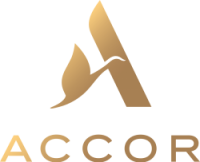NEWH is committed to keeping you informed about how others in the hospitality industry are responding to this pandemic in order to help you understand the potential outcome of the actions you are taking now. We will share relevant information, including video content, to provide you a global perspective about what is happening with all of our clients, peers and colleagues.
A R C H I T E C T U R E & D E S I G N
 May 5, 2020
May 5, 2020
Los Angeles, CA
Tom Ito, Principal, Gensler
How Will Hotels Rebound from COVID-19?
Editor’s note: This post is part of our ongoing exploration of how design is responding to the COVID-19 pandemic.
As the pandemic started to take hold globally in February, hoteliers began projecting an impact lasting more than a year. Now travel season is in sight and we are no closer to visiting the places we love.
While the short-term responses to create a safer hospitality experience are being discussed now, what are the long-term implications that will change how we travel and experience hotels? How do we rebuild the trust of hotel guests and give them confidence to return safely to hotels?
Here are seven considerations:
Continue to be beacons for the community.
In the weeks and months since the beginning of the pandemic, hotels have stepped up to serve a higher purpose for their communities. The “Hospitality for Hope” initiative, for example, provides rooms to house healthcare workers, adapt as temporary healthcare spaces, and house the unsheltered.
Post-pandemic, we can expect hotels to embrace an even stronger sense of social responsibility as they engage and welcome back their communities. Through the next crisis, how will hotels give back?
Think local first.
We think hotels will continue to be stronger community partners long after the current crisis. They’ll continue to provide for their employees, offer refuge following the next hurricane or flood, or serve meals to the needy.
In the immediate future as the country begins to reopen, hotels will be the hub that welcomes their communities with activities, events, and local hospitality. Until people become comfortable again with airline travel, we’ll see an initial focus on local and drive-to destination travel, reinforcing the importance of localization and community connections.
Essential stays and business travel are expected to return slowly, while leisure travel by people with discretionary incomes will pick up momentum over time.
Promote a culture of safety.
In the post-911 world, many travelers encountered increased security measures at hotel entrances. As we learn from those tactics, hoteliers must balance safety measures with a sensibility that helps guests feel welcome and at ease.
Some measures will be tangible and immediate — things like touchless technology, keyless entry, and mobile payments that are tied to the individual guest. Other measures such as air filtration systems, UV light sources, disinfecting sprays, healthy materials, and new housekeeping protocols will communicate to guests that their safety is a primary concern.
Lean into human connection.
As technology, digital interfaces, and mobile connectivity become more prevalent, we have to remember that human interaction creates the memorable moments hotels are known for. There’s still nothing more comforting than a friendly face and a warm smile.
What’s harder to ascertain is how new social distancing norms will impact social spaces in hotels — places like lobbies, cafés, pools, and restaurants. As a start, gatherings may become smaller and more intimate, with more meaningful and exclusive experiences. The design of public spaces will be more flexible and adaptable to accommodate changes in behavior we still can’t anticipate.
When large conventions and exhibitions are permitted to return, space requirements and occupancy capacities may be adjusted to meet new safety standards in local jurisdictions. In the near future, hotel operators will be looking for flexibility in multiple types of meeting areas, digital interfaces, virtual meeting capacities, and access to outdoor spaces. Once-in-a-lifetime social occasions such as weddings, family gatherings, and special events are expected to return initially as a high priority.
In many ways, a great hotel is the sum of its experiences, so hoteliers should consider how their offerings, amenities, and spaces can be kept clean and safe, yet keep in mind how they also create engaging and aspirational experiences for their guests.
Prioritize well-being.
The COVID-19 pandemic has shown us that a sense of safety speaks to our overall well-being. Hotels have already made great efforts to create wellness programs. As in the workplace and aviation sectors, we can expect well-being and health to go further and become the standard of a hotel stay.
We could see more attention to food, exercise, spirituality, and beauty as a way to model healthier lifestyles and promote wellbeing. By supporting intangibles like these, hoteliers can create value for guests.
Use design to promote good health.
From a design perspective, it’s important to think about the guest’s experience as they enter a hotel. Upon arrival, what measures can hotels take to provide guests a feeling of health and well-being?
There could be an opportunity to create a wellness check zone or even provide an on-site clinic or healthcare space (which could be attached to a spa or a standalone for business hotels). In-room workout options and elevated dining experience in guest rooms could also be an option. These are long-term design considerations that could raise guests’ expectations for safety.
Simplicity in design promotes the perception of cleanliness and the reset of a new aesthetic. Seamless surfaces, hard flooring, simple bedding materials, and limited furnishings can be designed elegantly, yet still be easy to clean and maintain.
Build-in resilience.
There is no denying that people eventually will resume traveling and return to hotels. What’s also likely is that a new crisis will emerge someday, demanding that hotels be ready.
The pandemic experience gives us the opportunity to rethink the future of hospitality.
How can we create spaces that are flexible and support a business model that is responsive to the next crisis? Can meeting spaces be resilient enough to host a wedding or convention, but serve as a medical triage space in a future emergency? This type of agility can provide a real value for hotels and their communities.
Whether it’s a health crisis, wildfire, or natural disaster, hotels will continue to be the place that puts personal interactions and emotional connections at its core to enhance the lives of all humankind. This is the moment to expand that role and prepare for the next challenge.
Design will help hotels problem-solve their way to a post-Covid future
Hotel design has become more important since Covid-19 say leading designers. (Picture: Pratama Ryan / Unsplash)Designers give their opinion on why they think hotel design will offer a brighter future for the hospitality industry in a landscape that currently looks fairly bleak.
Innovative thinking will be key to the future success of hotels in a world after coronavirus. Designers give their opinion on why they think that hotel design will offer a brighter future for the hospitality industry in a landscape that currently looks fairly bleak. We find out what they had to say.
Stalls and starts
Some of the world’s leading hotel designers weighed in on the current state of the global hospitality industry, with particular attention being paid to project pipelines and the stage of various hotel developments around the world. The reaction to the crisis has been mixed, with many projects being put on hold, but others ploughing full steam ahead.
The stage of the development obviously has an impact on whether or not a project can move forward, as does the liquidity of the developer, and developers whose properties were already funded are planning on forging ahead, says Clay Markham, Vice President, Global Sector Leader Hospitality of CallisonRTKL. Darrell Long, Design Principal and Regional Managing Director at Wilson Associates, is surprised at the number of developers that are proceeding with their schemes. “That number is shockingly large,” he says.
Design solutions
Tom Horwitz, Executive Vice President of NELSON Worldwide, thinks that many hotels that were planning renovations this year will push those works back to 2021. But the question then will be, what form will these renovations take?
Social distancing will need to be observed for some time to come, even when restrictions have been eased, to prevent the expected second wave of the virus, but will social distancing become a permanent fixture in F&B areas? Shay Lam, Managing Executive and Studio Creative Director at TPG Architecture says that the strongest impact Covid19 will have on hotel design will be in ways that are less obvious, such as remote check-ins, strict hygiene policies and contactless bathrooms, all of which will help to prevent the spread of the virus.
The future of brands
Some of the designers expect that the hospitality landscape in a post-Covid world will be a little less crowded. Beyond the lack of current demand for hotels that will likely stretch into the future because of customer wariness, there is also the fact that the proliferation of brands within big name portfolios will need to be culled. “I think that there will be a paring back of superfluous brands and properties that don’t match the new market that will emerge,” says Markham.
There is broad consensus that the boutique segment will bounce back quickly, with guests seeking a more intimate and experiential stay. Wellness will also perform powerfully in a world after coronavirus.
H O T E L B R A N D S
ACCOR ‘REIGNITES THE LOVE OF TRAVEL’ WITH A GLOBAL CAMPAIGN AS HOTELS AND RESORTS WORLDWIDE BEGIN TO REOPEN
CEO panel: Leadership, recovery and the future of hotels
By HOTELS Editors on 6/3/2020
The litany of statistics cited by Jonathan Tisch to kick off NYU’s CEO panel was a grim reminder of the devastation COVID-19 has wreaked: seven in 10 hotel rooms empty; 70% of hotel employees furloughed or laid off; US$500 million in room revenue lost per day; US$510 billion in total hotel revenue losses by yearend.
The situation is humbling – a word used by many of the hotel CEOs who joined a virtual check-in and placeholder for New York University’s International Hospitality Investment conference, which has been rescheduled for November.
Tisch, chairman and CEO of Loews Hotels & Co., hosted the panel, which included: Keith Barr, CEO of IHG; Sébastien Bazin, CEO of Accor; Mark Hoplamazian, president and CEO of Hyatt Hotels Corp.; David Kong, president and CEO of Best Western International; Chris Nassetta, president and CEO of Hilton; and Arne Sorenson, president and CEO of Marriott International.
Yes, 2020 is on track to be the worst year on record for hotel occupancy, Tisch said, but “the pandemic has reminded us of how connected we actually are,” pointing out the need for leadership, collaboration and shared sense of responsibility.

Getty Images
“To move forward we need widespread and regular access to testing; health and safety guidelines on how we can safely open and operate our businesses; liability protections for businesses that follow proper health and safety guidelines; and we need to find ways to stimulate demand by incentivizing people to travel again, of course, when it is safe,” Tisch said in kicking off the event.
He noted that recent protests in the U.S. reminded the industry that “events are out of our control, and they can greatly affect our businesses and the men and women who work in them, all of whom deserve to be treated with respect and dignity, whatever their background, race, nationality or preferences.”
Signs of recovery
Many of the CEOs cited business upticks despite underlining that it will probably be 2022 before hotels return to occupancy and revenue levels of early 2020. And they acknowledged that the past three months have been “trying beyond anything any of us could have imagined,” according to Nassetta, who said he was focusing on keeping a steady hand on the wheel and keeping employees looking forward. “They need to have hope, they need to see a light at the end of the tunnel, and it’s our jobs to give them that.”
Hoplamazian described the decisions to furlough employees as torturous and painful, particularly at a time when “we have to acknowledge that there is a lot of pain and suffering in the world,” referencing recent U.S. protests.
“It’s been an emotional roller coaster for me and probably all of us,” Sorenson said, adding that while it was occasionally difficult to avoid despair, the industry was attempting to mitigate the damage, including collectively advocating governments for help with, for instance, better unemployment insurance and financial support; helping hotel owners, many of whom are small businesses; communicating frequently and being transparent with employees and owners; and “holding out a path forward, some strategy, some hope” that the despair can be left “firmly behind us.”
Looking forward
Still, there is optimism: Kong and others cited tremendous pent-up demand for the leisure segment, driven, literally, by road trips. But without a vaccine, he said, as business rebounds slowly and videoconferencing becomes ubiquitous, “conventions will take years to recover.”
Barr said IHG’s Six Senses hotel in Vietnam was at 80% occupancy with local tourism, but that in the U.S., peak nights – to the extent that it’s a “peak” – have been Tuesdays and Wednesdays, signifying business travelers back on the road. Nassetta added: “We are double the occupancy we were at the bottom. Sadly, that’s still not a very high level of occupancy” (from 13% to about 25% to 30%).
Bazin pointed out that the recovery in Europe would not be in “drive-to” but “train-to” locations, particularly as the EU opens its inner frontiers to regional travel.
But he emphasized that trusting the local market teams would be key. “I really believe it’s a time to reset your own organization,” he said. “Now is the time to be bottom-up.”
Brand survival
With the global pandemic, Tisch asked, will some brands become unviable, and will new brands grow out of different traveler expectations?
“We’ve been asking ourselves this question,” Barr said. Brands matter now more than ever when it comes to safety and hygiene standards, but what does the guest experience look like with buffets, restaurants, bar and spas?
Nassetta phrased the question another way: “Is everything we’re doing really necessary? Not every brand will make it to the other side, but many will adapt to new customer needs and to the owners’ desires to drive efficiencies.
“The brand that is most important is Marriott Bonvoy,” Sorenson said, referring to the company’s loyalty program. “It’s the umbrella brand that is the direct relationship with the customer that shows Marriott will deliver a range of experiences, for location, costs, business or leisure.”
Every company represented on the panel is “in the business of getting fees from owners,” Bazin said. “I think clients of ours want us to move away from something that’s too generic” and more authentic and purposeful, he said, citing 25Hours and 21c.
M A N U F A C T U R I N G

Tarkett equips covid-19 hospitals & care centers
Tarkett has contributed to avoid saturation of Spanish health services through a donation of iQ Optima flooring, equipping medicalized hotels (Hotel Ilunion Alcala Norte and Hotel Occidental Aranjuez). Tarkett team’s way in Spain to thank those who take a step forward in the fight against the COVID19 pandemic, especially hospital staff and all sectors that are active in defeating the virus. #Juntospodemos
In UK, we are very proud and grateful to the team at Tarkett for being able to respond in the time of need to the NHS. 97,000m2 of safety floor leaving our doors sharpened the mind to how real this threat is. And huge kudos to all of the individuals who played their part in getting this crucial field hospital ready in time. #NHS #Tarkett
In Italy, we’re pleased to work with all the peers involved in building the new hospital fully dedicated to the Covid-19 patients located in Fiera di Milano in Milan, Italy. We provided technical advice for the floor design and logistical support to deliver in just 48 hours, 5000 square meters of Tarkett’s vinyl flooring (Primo Premium, Contract Plus and Eclipse), which were installed beside other 3000 square meters of iQ Optima already made available. In addition to that we supported the project by donating a certain amount of vinyl flooring. Thanks to the extraordinary effort of all the stakeholders, the hospital has been built in just 10 days! @fiera-milano-spa
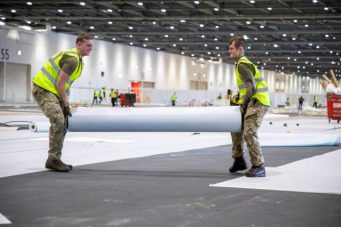 |
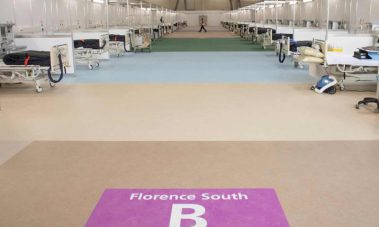 |
|
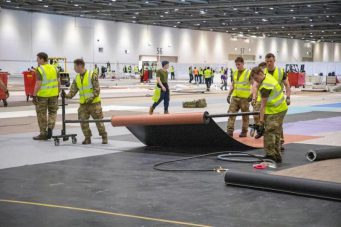 |
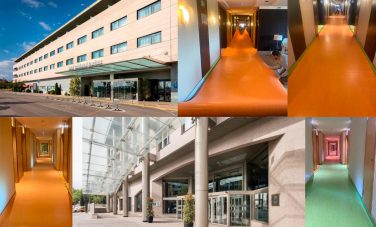 |
|
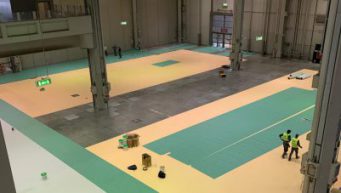 |
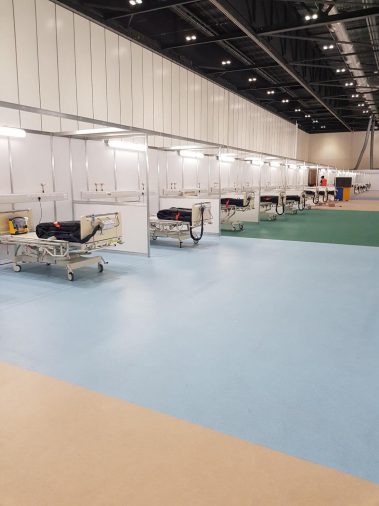 |

May 18, 2020
Chesterfield, United Kingdom
Kevin Swart, Sales Director, Northern Lights
Being a Bespoke Decorative Lighting Manufacturer in the UK – our business, like so many of us – is about creation and development with the Design community.
- The most blunt reality check, was that from a team of 17 – we were down to 2!!! So we needed to have a plan in place to work SMART and continue talking!!!
- The likes of Zoom and Teams quickly became our new platform of normal communication and over the last 8 weeks of Lock-down we have progressed over 40 projects – obviously ranging in size – with bespoke detailing needed for Hotel and Cruise projects.
- Our biggest challenge in the beginning was losing the understanding normally gleaned from customer interface , and so hand sketches started to fly between us and the Designers using Whatsapp , Messenger or emails.
- This certainly restored the lost confidence of “how is this possible” with ….we can do this – TOGETHER!
- Once development of designs was conquered , and drawings issued, we do find that revisiting and tweaking designs has become faster and approval of drawings has actually sped up – with many now being ready for Production, which started last week , with a small team to trial “how are were going to do this….return to manufacturing”
- Masks were an obvious first base…then the One way systems and yellow tape floor markings which have become the new floor decoration , along with numerous banners reminding our factory teams to social distance and wash/sanitise those hands.
- TEAMWORK has taken on a new meaning and so has COMMUNICATION ! and is still work in progress.
- DESIGN AND PRODUCT DEVELOPMENT – has been added to , and decorative shielding screens have already been requested by numerous Restaurant projects .
- One thing we have learnt – is that adaptability and forward is vital for any business today .
- We have to restore confidence , and start removing the fear from our spaces we are involved in supplying – so we can return and adapt to the “new normal”.
Our strap line which is isn’t unique to just us – “TOGETHER WE SHALL REBUILD AND RESTORE WHAT WAS BEFORE…ADAPTING TO THE NEW WAY OF DOING SO “…whatever “that” will look like !!

 Culp Hospitality/Read Window Products Support PPE Production for Essential Workers
Culp Hospitality/Read Window Products Support PPE Production for Essential Workers
When the Covid-19 crisis emerged, Culp Hospitality and Read Window Products quickly pivoted operations to address the urgent need for PPE for essential workers. From the beginning, demand has continued to grow exponentially. In the first 24 hours of production, Read Window Products specifically fielded orders for more than 10,000 masks. To date both companies have fulfilled thousands of orders, many sold directly to hotels to protect their staffs in preparation for guests’ return. Going forward, they will stock 3-ply cotton masks to meet ongoing demand for community organizations and business operations across numerous industries – from healthcare, education, cable network providers and contractors to office furniture manufacturers and retailers. To learn more, contact us at [email protected] or [email protected].
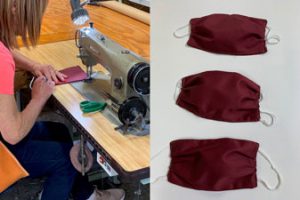
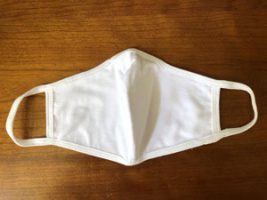
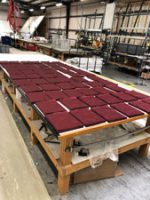

May 11, 2020
Lancashire, England
A.J.W. (Tony) Attard OBE DL, Group Chief Executive, Panaz Holdings
Hi, Greetings from Lancashire England the birthplace of the industrial revolution. Where cotton was first imported into Europe from the USA and woven into the fabric that clothed the world.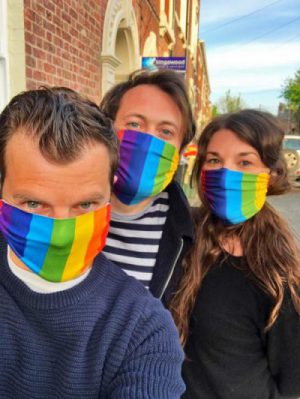
By our very history we are no stranger to epidemics and industrial change but in my 30+ years in the Industry it is the first one that I have personally experienced.
Our factories are still operating, although with fewer staff, as we have been asked to stay open by the NHS to supply much needed anti-microbial fabric for the new Covid-19 wards that are being built. They say that necessity is the mother of invention and our production of antimicrobial fabric that kills the virus on impact has led to us into a new industry manufacturing very safe and comfortable face masks that not only perform but are comfortable and look good too.
We all want to get back to work and we shall, as long as we can respect the virus by ensuring that we socially distance.
So as employers we must ensure safe working environments for our staff and respect peoples space. Then we will get through this sooner rather than later. There is nothing I want more than to see our staff come back to the office, and to personally see our customers open up their hotels and restaurants again.
Stay safe everyone.
P R O C U R E M E N T
![]() May 18, 2020
May 18, 2020
London, United Kingdom
Karolina Januskaite, Project Manager, Benjamin West
What have been your greatest challenges so far?
Making sure that everyone at Benjamin West is safe, happy, feels supported and comfortable with the sudden change in their working environment. Keeping friends and colleagues motivated and engaged in the present moment, elevating positive thinking above all else, looking forward to all the good that we can design for our futures when we come through the current situation. With that in mind, and as an additional support to the daily check-ins on one another internally, Benjamin West has arranged a professional therapist to come onboard and speak with the team members in small groups about the challenges of today and the mental impact on all of us, individually and as a society as a whole. We have always taken mental health very seriously at Benjamin West and do the best we humanly can to keep a level of sanity and positiveness across the team at all times – especially right now.
What do you think is most important for suppliers/designers/architects to know about your business right now?
Benjamin West, though all staff are currently working from their homes, is running business as usual. We have been fortunate that every one of our projects has continued and now that the majority of sites are re-opening (one in London never even closed), we are progressing as close to full pace as possible with the support of the supplier network around us. We’ve successfully completed model-room reviews during lockdown, all delivered in time and we have Purchase Orders ready for the suppliers that support us and our clients so well. The other key element for suppliers to know is that we’ve been providing both clients and manufacturers with clear assurances and detailed, up-to-date information on those vital payments required to keep projects on track. Benjamin West has also been very fortunate to sign a few new projects over the past six weeks, allowing us to bring most of our furloughed colleagues back into the team. This has been one of the most heartening actions taken. We are determined to continue to work in providing both our existing and new clients with the highest quality of service as we have successfully been doing over the years, despite the challenges we are all facing at the moment
What’s keeping you up at night?
Making sure that we, as a company, have done and are continuously doing all we can to support our staff: mentally and financially. Oh, plus the team quiz that I’m organising for Thursday this week
How are you able to stay positive amidst crisis?
The key, I think, is to bring all concerns and negative thoughts out and on the table and simply talk about it, openly and in depth. Most of the worries we carry inside aren’t nearly as bad as we tend to think inside our heads. Laughing. That helps a lot too.
Any WFH pro tips?
Take breaks. Stay connected to people.
Do you think any of the changes in how you do business could be permanent?
A number of team already split their time between working from home and in the office; this period has proved to others in the team that they can likewise work very well and stay as productive and on top of their workload, whether working from home or the office. I’d also imagine that Daniel might travel less frantically…
What is your favorite social isolation hobby, recipe, tip for beating boredom? Have you picked up anything new?
Aside form Monday morning team catch up and Friday Zoom drinks (we had a close-hand magician join us last week), we also do a weekly game night. Anything from Bingo night, to a specially Benjamin West-tailored ‘pub quiz night’ – we try to keep the event time consistent but the fun vary from week to week. Personally, I watch good old stand-up comedy to keep me smiling.

March 30, 2020
London, United Kingdom
Gordon Anderson, Managing Director, Blue Moon Hotels Procurement
Love in the Times of Cholera/Business in the Times of C19
Written by Gabriel Garcia Marquez in the 1980s, one interpretation relates to love conquering all despite obstacles of time and place.
Doing business in the first quarter of 2020 seems to have (on the surface) all the obstacles of time and place but very little love – or does it.
Whilst I can’t vouch for other companies, Blue Moon heard the advice and closed our office on Tuesday 17 March with home working now being the order of the day. It was a very sombre affair, saying good bye to the team without knowing when we would be together again in the same space.
I need not have worried, what seems to have happened is that many many companies across the EU and UK have been absolutely determined to keep the administrative function within their businesses open. This has allowed companies like mine in the Hotel FF&E Procurement Agency business, not only to stay open but continue to work up fitting out budgets, pay deposits, to swap finishes samples, to comment on drawings and do research. When the market returns to a business as usual scenario we will be fit and raring to go with the manufacturers switching machines on.
Where’s the love I hear you say, well my experiences to date have all been positive with suppliers going beyond the norm to prove they are open, faster response times, many positive “video” conferences and reciprocal thanks for keeping things going in very difficult times – the love is shared.


